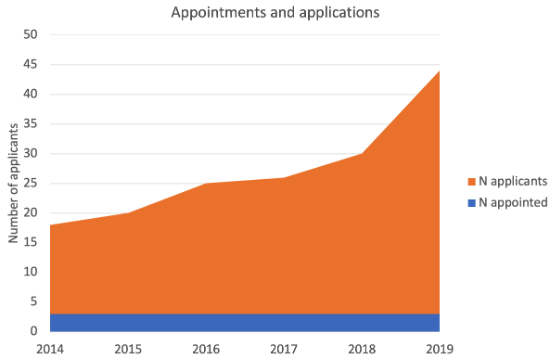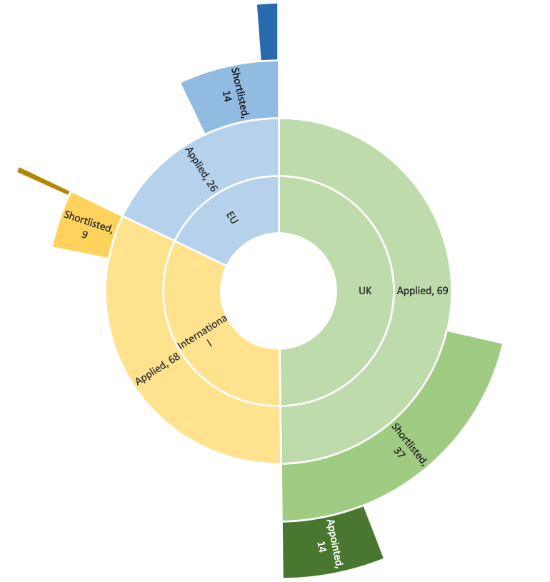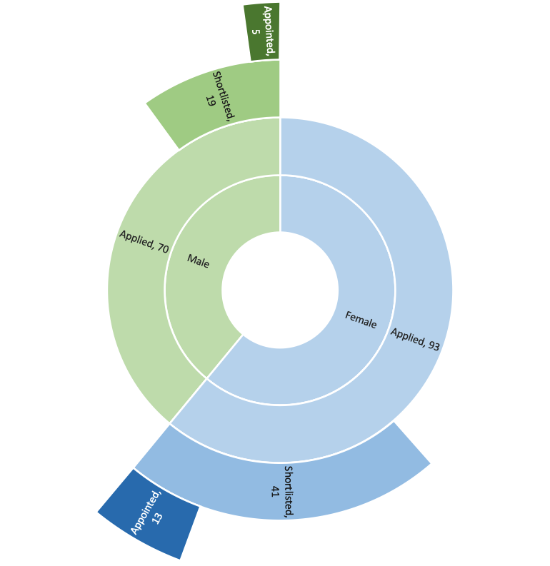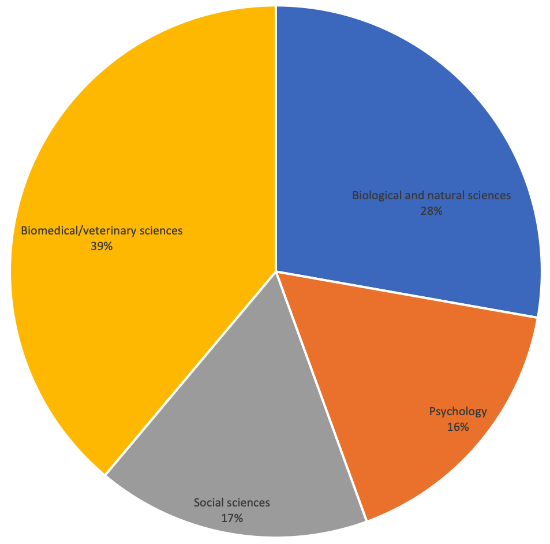Recruitment metrics
The Molecular, Genetic and Lifecourse Epidemiology programme welcomes applications from all backgrounds, and appoints applicants on merit. This page summarises our recruitment metrics since 2014.
Application and appointment rates
Since 2014 the programme has recruited 18 Wellcome-funded students from a total of 163 applicants, with the programme increasing in popularity over time. In some years we have also appointed University-funded studentships that join the cohort and follow the same programme of training.

International students and applications
Over half of our applicants come from outside the United Kingdom. We encourage applications from candidates regardless of nationality, and the selection committee disregards nationality in shortlisting. The University of Bristol provides excellent support for international students, and also offers pre-sessional English language training to applicants who don't yet meet the required language standard for the course.

Gender balance amongst applicants and students
The programme welcomes applications from people of any gender. The selection committee comprises a balanced membership of male and female senior academics who shortlist on the basis of academic merit and fit to the programme. The programme is largely based in the Bristol Medical School, which holds an Athena Swan Silver Award for our work in promoting gender equality.

Student backgrounds
Our students come from a range of subject backgrounds in the sciences and social sciences, reflecting the multi-discpilinary nature of our supervisor pool and research environment.

Completion rates
Since 2014 100% of our students have been awarded a PhD, with 73.7% of our students completing within 4 years. The median time to submission has been 4 years in all years except 2010 (4.2 years).
We recognise that various personal circumstances beyond the control of our students can make completion of a PhD within 4 years extremely challenging, and we offer significant support to ensure that all students have the opportunity to complete their PhD regardless of circumstances.
Next destinations
For privacy reasons we are unable to provide detailed quantitative information on next destinations of our students. However, graduates from the programme have entered both academic research and non-academic scientific careers. The programme encourages students to consider a wide range of career routes through specific careers sessions in the graduate studies programme and through the development of wider skills, including public and policy engagement. Many of the computational and statistical skills developed by our graduates will equip them well for a wide range of careers both inside and outside science.
